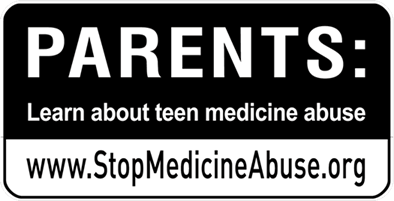- Jan 7
- 3 min read
What is DXM?
Dextromethorphan (DXM) is the active ingredient in most OTC cough medicines.
Approved by the U.S. Food and Drug Administration in the 1950s, DXM is the most widely used cough suppressant ingredient in the United States. Millions of Americans rely on OTC cough medicines containing DXM for cough relief, and when taken as directed, these medicines are safe and effective. However, when taken in excessive amounts higher than recommended doses, DXM can produce dangerous side effects.
Look for this icon on all OTC products that contain dextromethorphan.
What is DXM Abuse?
Since OTC cough medicines are more readily available and more affordable than prescription or illicit drugs, they are more accessible to teens. Because they are legal and regulated, teens may believe that abusing them is less dangerous. In fact, some teens ignore labeling instructions and intentionally take large amounts of DXM — sometimes more than 25x the recommended dosage — to get high. This means ingesting multiple packages or bottles of OTC cough medicines.
When used as directed, DXM is safe and effective. But when abused, it can cause harmful side effects.
Side Effects

Many DXM-containing medicines also include ingredients like antihistamines or decongestants. In large doses, these can lead to serious complications, including liver damage, heart issues, and extreme sedation. Some teens mix DXM with alcohol, drugs, or energy drinks, further increasing the risk of harm.
Warning Signs

Slang terms
Teens could be talking or texting about getting high on over-the-counter (OTC) cough medicine without you even realizing it. There are many slang words for dextromethorphan (DXM) abuse.
DXM or Dex
Lean / Purple drank / Sizzurp / Dirty Sprite
Robo / Robotripping
Syrup head
Tussin / Tussing
Dexing
Orange Crush
Rojo
Triple C’s or CCC’s / Red Devils / Red Hots / Skittles / Skittling
Velvet or Velvet Syrup
Learn them, listen for them, and talk to your teens if you hear them using the slang.
Prevention
Talk
Teens listen, even if they act like they don’t. In fact, teens who learn about drugs from parents or other reliable sources are less likely to say they would try drugs. There are ways to bring up critical issues like medicine abuse with your teenager – the trick is to know how to start the conversation. Teens may mistakenly believe that since dextromethorphan (DXM) is found in over-the-counter cough medicines, it must be harmless and is just an easy and safe way to get high. It’s not. When abused, DXM can cause serious side effects. Parents have the power to ensure their teens know the truth.
Monitor
Monitor Your Medicine Cabinet: You can take steps to protect your teens by safeguarding the medicines you have in your home. Take inventory of what you have and how much, so you will know if anything goes missing.
Monitor Your Teen: In addition to monitoring teens’ behavior for warning signs of medicine abuse as well as levels of highs or plateaus, be aware of what your teen does on the Internet, the websites they visit, and the amount of time they spend online, because there unfortunately are websites and online communities promoting DXM abuse with instructions on how to achieve certain levels of highs or plateaus.
Share
Speak up – at school meetings, sporting events, and other gatherings of parents and those in your community – to ensure people active in your teen’s day-to-day activities know the warning signs of OTC cough medicine abuse and misuse. Make sure you know who your kids are hanging out with and if their parents are aware of the dangers of OTC cough medicine abuse. Many kids are abusing these medicines right in their own homes or their friends’ homes.
If you want to learn more about substance use in teens, click on the button below to be directed to our nonprofit, the Drug-Free Youth Coalition. Volunteer and leadership positions are available if interested. You can download and print information on side effects, warning signs, and prevention by clicking the handout button.
















